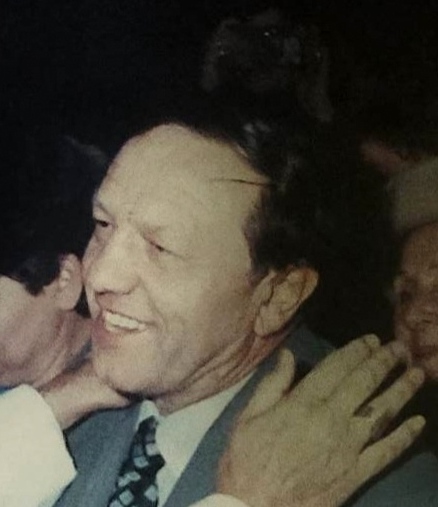Katyusha rockets were flying all around

Download image
As stated in his identity card, Jan Kolaja was born on 16 September 1937. In fact, he was born two days earlier and the date was wrongly registered by the parish priest in his native village of Strání. In April 1945, as a seven-year-old boy, he was hiding in a bunker in the garden with his parents and siblings for several weeks while artillery shells were exploding all around. It was because the liberation fights at the village of Strání in the valley of the White Carpathians lasted a fortnight and claimed many lives. Under the communist regime, during the collectivization, his parents resisted for a long time the pressure to join a cooperative farm and farmed privately until 1960, when his father died. Jan Kolaja trained as a machinery and other equipment repairman. He then worked as a vehicle technician for the regional forestry administration and then went on to a transport company, where he remained for forty years until his retirement. In 1963 he married Maria Batůšková, with whom he raised their children Antonín and Jana. His faith in God accompanied him throughout his life. Even as a young boy, he served as an acolyte in the church in Strání and whole his life he tried to live in accordance with Christian principles. Despite pressure at work, he never joined the Communist Party and after the invasion of Czechoslovakia by the Warsaw Pact troops, he refused to sign the approval of occupation. In 1985 he participated in the national pilgrimage to Velehrad, which turned into one of the largest anti-communist demonstrations. In November 1989, he participated in the canonization of Agnes of Bohemia in Rome. At the time of filming in 2021, he was living in Uherské Hradiště.





